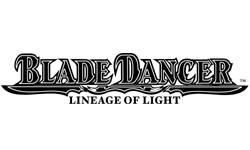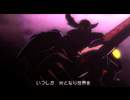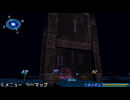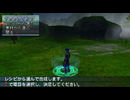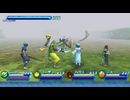|
Since Sony's PlayStation Portable handheld released in the Fall of 2004 in Japan, there have been very few quality roleplaying experiences to be had. One thing that has been even more scarce than a good time has been original games built from the ground up. Sony has decided to try and overcome this problem by working with developers hand-chosen to develop unique titles for the PSP. The latest effort, co-developed by Hitmaker and SCEI, goes by the title Blade Dancer and utilizes many features one might find in certain console RPGs.
|
"...overall this is one of the best PlayStation Portable games available at this moment." |
If there is anything that readers can learn from this hands-on impression, it is that Blade Dancer is probably the best roleplaying experience that PSP gamers in North America will have up to the point of its release date. That being said, one of the first things that players will notice is that the game does emit a very strong anime feeling to the story. The opening, at least for this version of the game, is in Japanese with English subtitles. Also of note is that the game can be played in both English and Japanese, and can be switched on the fly through the menu. The one problem from this very early copy of the game is that the localization feels incomplete, though people close to the publisher tell us that these problems have been fixed.
Players are placed in the role of Lance, who has come to the island of Foo looking for new ways to challenge himself. Walking around town, Lance is given a chance to talk to the inhabitants of Jade, the town players start off in, as well as accept missions and take out the mafia. Ok, so there isn't really a mafia to take down in this game, though there is an evil being called the Dread Knight that gets in Lance's way on occasion.
Other than getting into battles, doing anything in this game requires players to first select the item or person. Pressing the square button locks on to the nearest object or person, pressing it more will change targets. This allows Lance to talk to other people, open treasure chests, enter buildings, save the game, enter and exit towns, as well as many other things. A big help is targeting an enemy and checking what its party will be in battle.
While enemies are visible on the world map, they're actually only avatars for the overall enemy group. Enemies are floating skulls adorned with various tattoos on the world map, but are very different in battle. If the characters in the player's party are more powerful than the group, then it will run away when the player is noticed, while it will be aggressive if they're weaker. Now, while it is interesting to see enemies on screen, it does show one of the weaknesses in the game.
Graphically, this game is quite a bit better than many of the other roleplaying games on the PSP, though the game does have its hitches. For one, players will notice that enemies in the field are completely different than what they are in battle, which shows that either putting multiple different enemies on screen at one time was impossible, or the developer just got lazy. Other things that players will notice is that they will sometimes be able to see the outlines of different areas in the game. Basically, each area of the game is connected together with these frames and they are actually noticeable in areas. Granted, this is grasping at straws, as this game still looks good despite these slight distractions.
The music in this game is handled by Keiji Nishino, who seems to be a little known composer. While this might seem like a good or bad thing to some people, it's more middle of the road. While most of the music itself is fairly well done, players will notice the lack of music on the world map or in dungeons. This is quite depressing considering that many of the tracks are quite delicious to one's ears. Sound effects were handled by Yuuki Mora and they're quite well done. Unlike certain other RPGs for the PlayStation Portable, footsteps are heard the way they should, and enemies are audible when they notice the player, making it easier to know when to make chase or run away.
Two huge parts of this game are the missions and the alchemy-like item creation system. Players can accept missions by talking to as many people as they can find, learning the troubles they have, and deciding whether or not to help them. These missions can net the player prizes such as money and new items. One of the early missions has players find some materials for a guy outside of a weapon shop. Once found, these materials can be traded to the same NPC in exchange for a weapon normally created by the sum of these parts. This brings up the item creation system.
Every item in the game can be created by the player through the menu, at any point other than during battle. Every weapon in this game can break, which is sort of a problem for players deep in some of the game's huge dungeons. Now, to fix this, players can visit a shop to get items broken down to its materials, giving you the ability to create these weapons at will, or any item in case players are in need of potions or other support medicine as well. This gives players the chance to also make weapons that they don't have recipes to, though these are harder to figure out. Each time an item is created, there is a possibility that it will fail, losing the creation materials in the process. While this part of the game might sound a bit bothersome, it really makes the game feel quite a bit deeper.
The battle system in this game is a simple turn-based roleplaying experience. Each character's turn is decided by a small circle by each players name that turns in a clockwise motion. When this circle changes to an exclamation point, that character can then attack, use items, and much more. Special attacks and skills in this game are called Lunabilities and each attack by enemies and players fills up a Luna bar that decides both EXP gained from battle and also what skills are used. It is also necessary to keep an eye on the brown bar just below the characters' Health bars, as these indicate weapon integrity. Once that bar is depleted, the weapon breaks and is no longer usable.
Hopefully this introductory examination of the game will allow you to decide of this game will be for you or not. Soon-to-be players will notice that this game has some flaws, but overall this is one of the best PlayStation Portable games available at this moment. If more developers create traditional turn-based RPGs that end up playing similar to this one, PSP RPGamers will be better off.
|









